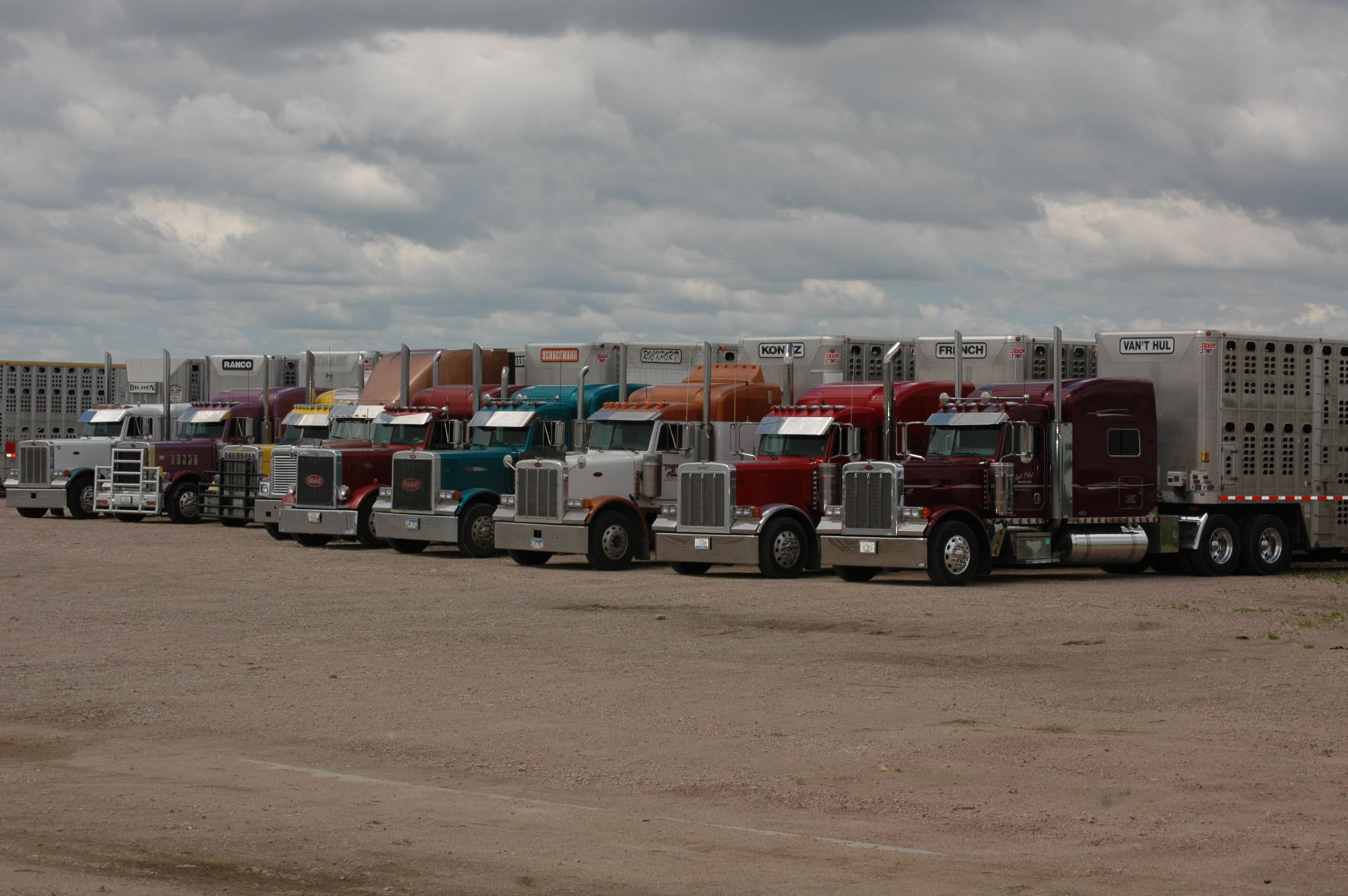Cattlemen across the nation applauded a bill introduced in the U.S. Senate on May 23 to reform federal Hours of Service rules for livestock haulers.
In a statement, California rancher Kevin Kester, who also serves as National Cattlemen’s Beef Association president, said, “Hauling livestock is inherently different than hauling products like paper towels or bottles of water. Live cattle can’t simply be left unattended in a trailer—especially in very hot or cold weather—for extended periods of time, and this bill takes that into account. Senator Sasse deserves a lot of credit for his leadership on this issue, and we thank all of the original cosponsors who stepped up to show their support for livestock haulers and cattle producers across this country.”
U.S. Sens. Ben Sasse of Nebraska, Heidi Heitkamp of North Dakota, Jerry Moran of Kansas, John Hoeven of North Dakota, Jon Tester of Montana, Joni Ernst of Iowa, Marco Rubio of Florida, Tina Smith of Minnesota, Pat Roberts of Kansas, Steve Daines of Montana and Rand Paul of Kentucky introduced the Transporting Livestock Across America Safely Act. This would reform federal HOS rules in a way to ensure animal welfare, highway safety and well-being of livestock.
“Nebraska Cattlemen is extremely appreciative of Sen. Sasse’s hard work on behalf of our industry and greatly welcomes this legislation. Hauling livestock is very different than hauling any other commodity. Sen. Sasse’s bill helps fill the gaps that exist between federal regulation, public safety, the needs of producers, and the well-being of the animals under our care,” said Galen Frenzen, president of Nebraska Cattlemen.
Ernst said, “The transport of agricultural commodities, particularly livestock, poses unique challenges not faced by other segments of the trucking industry. The Transporting Livestock Across America Safely Act addresses these realities and the shortcomings of the current hours of service regulations by giving truckers the flexibility they need to get cattle, hogs, and other live agricultural commodities to their destination.”
The current Hours of Service rules for livestock haulers can present challenges for the cattle industry and can jeopardize the health and well-being of the livestock.
Sasse said the ranchers and livestock haulers are concerned about the well-being of their livestock and safely transporting them.
“The Department of Transportation’s current regulations endanger livestock during hot summers and cold winters—which Nebraskans know well—causing significant stress on the animals and concern for the drivers. This bipartisan bill is good for our ranchers, good for our haulers and good for our livestock,” Sasse said.
Livestock haulers are to start using Electronic Logging Devices to track driving times and distances on Oct. 1. The current rules require drivers to turn on their ELDs after crossing out of the 150-air-mile radius from their loading point, after which they can only drive for 11 hours before taking a mandatory 10-hour break.
The TLAAS Act takes into account tat the trailer is full of live animals and must keep moving to the destination as quickly as possible. This bill provides more dive time for livestock haulers, and grants the flexibility for drivers to rest at any point during the trip without the break counting against HOS time. The bill also allows for another 150 air mile exemption on the back end of a livestock haul to account for the wait time that occurs when unloading live animals.
Missouri Cattlemen’s Association President Greg Buckman said this is a top priority for the association at the federal level.
“We urge our U.S. Sens. Roy Blunt and Claire McCaskill to support this legislation and serve as leaders in its passage. Congress needs to pass this bill as quickly as possible so we can have this issue resolved before the mandate is implemented,” Buckman said.
Kester said the legislation is vitally important to the livestock industry. “I hope Congress will pass this bill as quickly as possible so we can have this issue resolved before the ELD mandate for livestock haulers goes into effect on Oct.1,” he said.
Jennifer Carrico can be reached at 515-833-2120 or [email protected].



